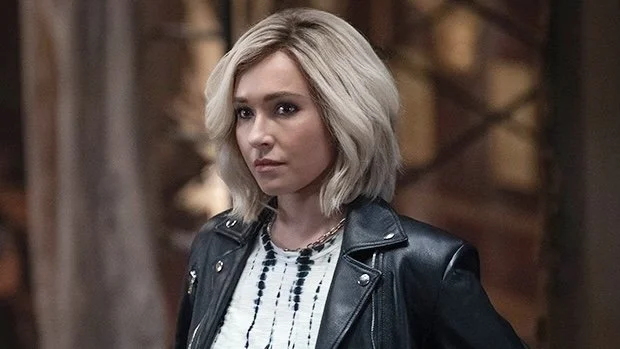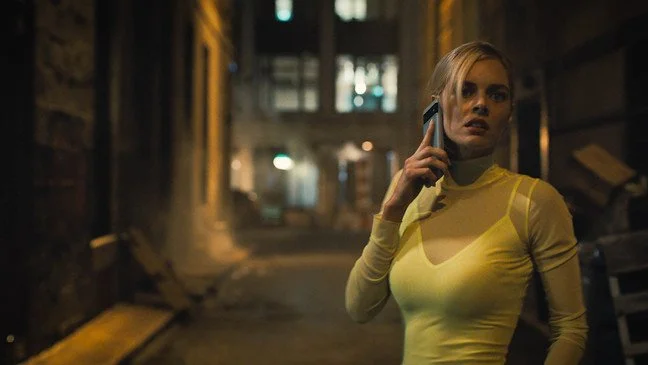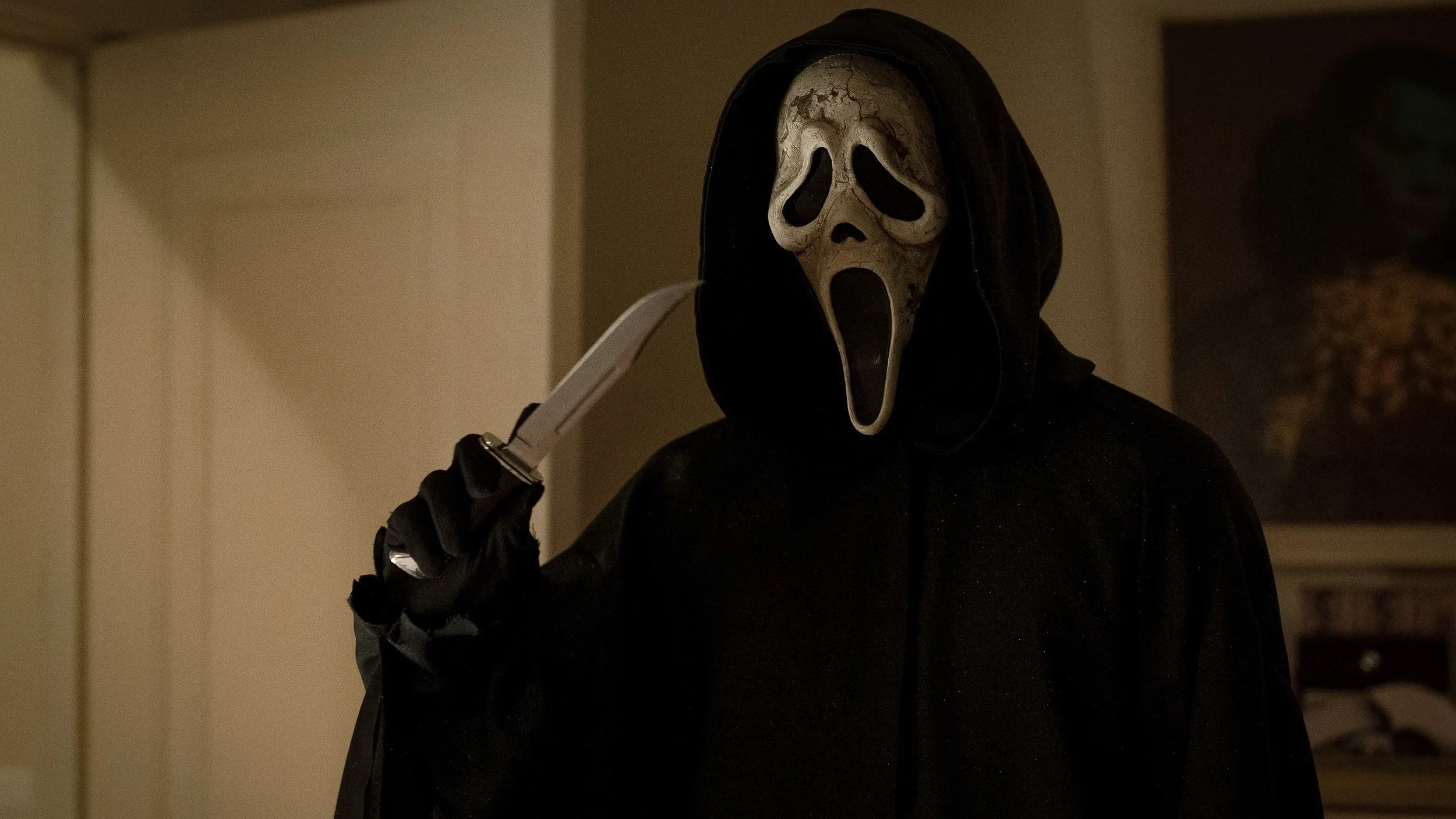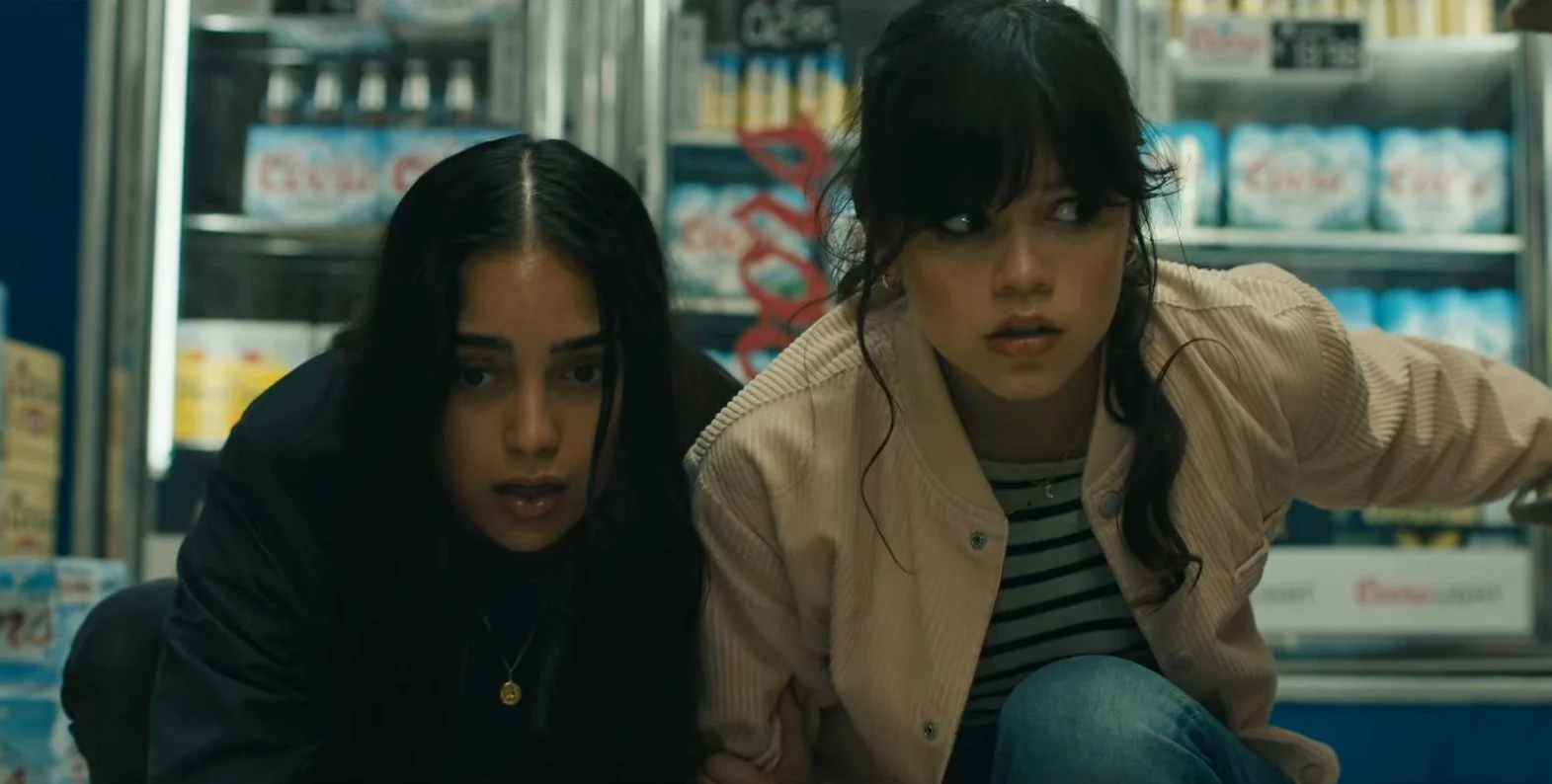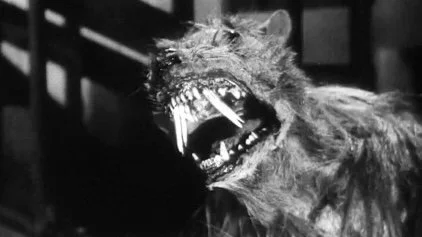Film Review & Musings — "Scream VI"
Spoiler-phobes beware! My musings are best read after seeing the movie.
Scream has been a part of my DNA for pretty much my whole life. The original is the first horror film I can recall watching. I was 5 years old both when it premiered in the winter of 1996 and when it was released on video in the summer of 1997—and that’s roughly when I would’ve seen it. My family wasn’t very strict about what I watched, so my horror journey began early. By time I made it through middle school, I’d consumed every entry in every major franchise as well as many of the standalone classics; I like to think that I was more of a Kirby than a Randy back then.
Which is why it was so exciting to learn that Kirby would be returning for Scream VI. Admittedly, however, I have been one of the people who just accepted that Kirby was dead all these years. Anytime since 2011 when someone has said, “Well, we didn’t see her die,” or, “Nobody confirmed that she was dead by the end of Scream 4,” I’ve been like, “Oh shut up, she’s dead, get over it,” despite adoring the fuck out of her and wishing she’d survived. So when it was announced that Hayden Panettiere would reprise her role, I was thrilled but apprehensive.
Hayden Panettiere quickly put my uneasiness to rest, though. The moment she comes on screen in Scream VI, all feels right in the world. Few characters have the presence that Kirby Reed has. She was instantly iconic in 2011, effortlessly commandeering the horror expert reins from the late Randy Meeks while weaving in a cool sexiness that few can ever attain. It’s no wonder thousands of fans held out hope that Kirby would reappear someday.
The series brings Kirby back as an FBI agent, and I’ll say it makes sense. Whereas Sidney Prescott channeled her trauma into helping survivors find catharsis, Kirby’s scars motivated her to actually hunt killers as a Criminal Minds-type behaviorist. And while I don’t love the idea of Kirby becoming a cop, I will say that the direction is understandable. I get why a character who’s been through what she went through would go down that path, and I understand why it makes sense from a narrative longevity perspective.
If all goes well, Kirby could fill the function that Gale and the late Dewey Riley have held in previous films. Whenever a Ghostface pops up, Gale and Dewey have gotten involved because 1.) they have a personal stake in the matter, and 2.) they have a professional obligation/incentive. So if Kirby sticks around, being on the FBI’s Ghostface beat could be her “in” to any future installments. Next time there’s a Ghostface- or Stab-related case of serial murders, the feds can send Kirby in an official capacity to put a stop to it, and that would allow her to take up the mantle as the pro with skin in the game. Because if Scream VI is any indication, Gale Weathers may not be long for this world.
Perhaps one of the best things about Scream VI is watching Gale and Ghostface going mano-a-mano. Ever since these reboot films started up, folks have wondered whether Gale could be an opening kill. Personally, I always thought that would’ve been a sour note to open one of these latest two installments on, but boy oh boy does Cox prove once again that Gale is a fierce fighter and that she herself is tough as hell. Fans are about as invested in Gale Weathers as can be, so when it became clear that she was in serious peril, I could feel myself clenching up.
The sequence is shot and edited in typical present-day action-thriller fashion. Namely, every conceivable angle is covered and cut to in quick succession. Such filmmaking is supposedly meant to be disorienting and jarring—it ostensibly wants to put us in the thick of it—so, given that the character at risk of being gutted like a fish is none other than the incomparable Gale Weathers, the point is to put us off-balance, to make us unsure of what’s going on, what will happen—so that when the final blow strikes, there’s a pang of shock, a gasp to emit… Sure, I get that… but… I promise you, more calculated framing and more precise editing would’ve amplified the performance Courteney Cox delivers, and the choreography would’ve had more impact. I know in the digital age, the temptation to shoot a bazillion terabytes of footage is enticing—and that deliberate, intuitive filmmaking is a scarce commodity now—but good god, guys, just storyboard and compose the shit.
Funny enough, the sequence that pulls this off a bit better abuts the Gale vs. Ghostface fight. The subway sequence forces many of the characters to remain still for a prolonged period of time. The characters being packed onto a train car and surrounded by crazies in costume, including multiple Ghostfaces, puts the filmmakers in a position to dial it in and be more conscious of what the camera’s doing. With the blocking somewhat limited due to the nature of the space, the closeups on the principles and the positioning of the masked background actors—any one of whom could be the real killer—almost has to be more intentional. In a way, I found this part more suspenseful than the Gale stuff, and it probably has to do with how it’s told, visually. Strange how that works!
I wonder what Samara Weaving’s Professor Laura Crane would make of Scream VI’s construction… Weaving is pretty funny here as an awkward film professor who specializes in slasher cinema, of course. She plays it so well. I’ve never been a professor, although, in hindsight, I really should’ve gone into academia: I love talking about and analyzing movies, I have experience actually making them professionally (more than most profs do, I dare say), I’m an okay writer, and I get verbally clumsy if I haven’t mentally prepared to say what I’m saying. All things considered, Samara Weaving’s portrayal really resonated with me. I think Professor Crane and I would be great pals.
Likewise with Jasmin Savoy Brown’s Mindy Meeks-Martin, obviously. She and Kirby have an exchange about sequels that should be how every first interaction ought to go. You can tell a lot about a person by which Friday the 13th or Halloween is their favorite. I, personally, can deduce everything I need to know about a person by which Chucky kill is #1. Scream as a franchise is definitely not hard-up for genre-savvy characters, which is not only par for the course but also entirely necessary. Scream is a smart series with an astute fan base. If the storytelling slips or becomes uninteresting, many fans will bemoan. Luckily, there are no bad Scream movies yet. But how long can that streak last…
Naturally, fans are already speculating about—or actively pitching—Scream VII. And, well, I have an idea, so I’d be remiss to not post it here, right?
There is a moment in Scream VI where a character addresses Gale’s history of profiting off the suffering of others. After the events of the first film, she wrote The Woodsboro Murders, then sold the film rights for what became the original Stab, and that spawned several sequels, many of which have provided a venue (or an avenue) for additional real-life murders. In Scream 2, Mo Evans and Phil Stevens are killed at a sneak preview of Stab. Scream 3 takes place on and around the set of Stab 3. Then there’s Scream (2022) and its toxic Stab fans run amok. Et cetra, et cetra. The impetus for a lot of this bloodshed—and the launch pad for Gale Weathers’ career—was her bestselling The Woodsboro Murders book. So, to say that much of Gale’s wealth is blood money would… not be completely unfounded.
Gale has indeed paid a price, physically and emotionally, over the years. No question. She has shed quite a bit of blood and tears as a participant in every Ghostface rampage. But then, as a writer and broadcast journalist, she has managed to take only as much of the attention as she needs before repositioning the spotlight so as to give the public someone else to obsess over in the long term, at her own gain. In Gale’s defense—and she even says this—if not her, then someone else would have, so why not someone who was actually there? Fair. But you still did it, Gale! You turned other survivors into fodder for the masses while you raked in the dough, repeatedly. However, maybe now that Gale has come as close to death as she ever has, she can redirect the spotlight onto herself and pen a memoir, perhaps one in which she reckons with her role in all this.
Maybe other celebrities follow suit and take the opportunity to speak up about being a part of a series of movies that were inspired by and continue to inspire murders. For example, I wonder how “Heather Graham” feels about being the face of such a franchise. Or “Tori Spelling,” who played the Stab version of Sidney Prescott. Luke Wilson, David Schwimmer, Kristen Bell, and Anna Paquin have also “acted” in a Stab film and are thus technically established Scream characters who may have in recent years reevaluated their own form of cashing in on death.
And if the next killer has a vendetta against Stab, then maybe all the celebrities connected to the success of the series are in danger. Maybe Scream VII opens with “Heather Graham” getting a real opening beyond being Drew Barrymore/Casey’s facsimile in Stab, with Gale being Ghostface’s grand prix. Or, hell, maybe “Heather Graham” is the killer, bitter at a franchise that “ruined” her career, and Gale is the opening kill this time! Gale going first would make sense for me here: give her one final showdown with Ghostface to kick off a film about the consequences of benefitting from violence.
Our relationship to violence, as a society, was a huge theme that Wes Craven frequently wrestled with. That’s largely what Scream is about, in fact. Craven also explored such ideas with New Nightmare, and if Scream VII does go the route of bringing back Stab actors as “themselves” to confront their roles in all this, that would be an interesting New Nightmare-esque meta approach. And they’d both be seventh installments! Plus, being about The Movies would be a cool parallel of sorts to Scream 3, in a similar manner to how Scream VI is a parallel of sorts to Scream 2.
While the blueprints of Scream 2 and Scream VI definitely resemble each another, VI doesn’t even come close to surpassing 2 when it comes to the killers’ reveal and motivation. We’re six entries in, so it’s possible that it’s just getting harder to pull this off well, but I didn’t find VI’s Ghostface reveal or the motivation behind the kills riveting or surprising in the least. I just kinda went, “Huh, okay then.” I mean, it makese sense, I guess, as far as movie-logic goes, but… there’s not much of a crescendo. Granted, 2 has the inimitable Laurie Metcalf and VI doesn’t, so it was always going to be an uphill battle this time around.
Scream VI also lacks the measured framework required throughout in order to sell the conclusion effectively. It boasts some decently executed sequences, but unfortunately the whole ends up being less than the sum of its parts. It’s super brutal in the moment, but once the plot moves on, so do I. Don’t get me wrong, I quite enjoyed the film. I will likely revisit it again and again, as I do the rest, and I’ll be first in line for #7, but Scream VI is nowhere near the best of the bunch. I’ll say it again: there’s not a bad Scream film—but they are not all in the same tier!

